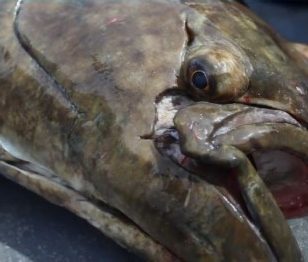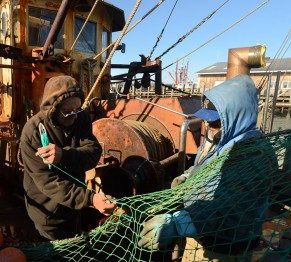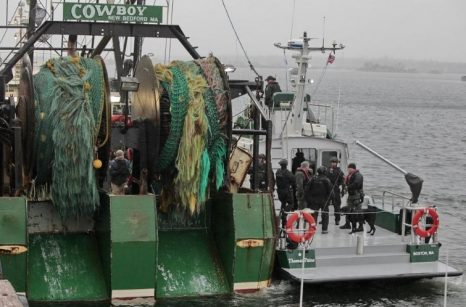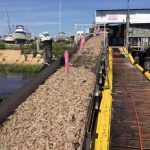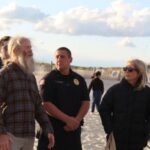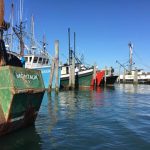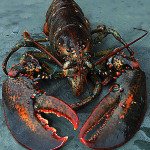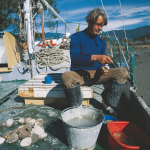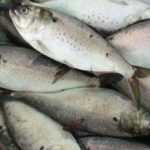Tag Archives: Permits
Athearn Marine Agency Boat of the Week: 70′ Steel Stern Dragger, Permits, 600HP Lugger Diesel
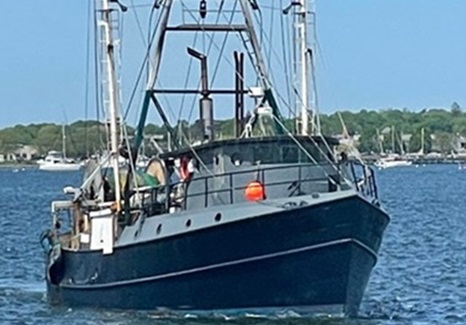 To review specifications, information, and 9 photos’,>click here<, To see all the boats in this series, >click here< 07:50
To review specifications, information, and 9 photos’,>click here<, To see all the boats in this series, >click here< 07:50
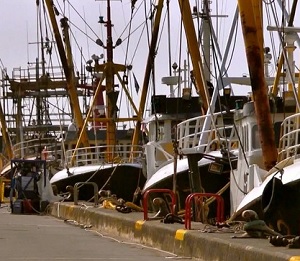
Permits issued allowing French fishing boats to return to Bailiwick waters
Guernsey States says it is processing applications for the new system which will replace the The London Fisheries Convention that ended following Brexit. The new system will issue individual authorisation documents to French fishing vessels which choose to fish in Bailiwick waters in 2020. It will only apply during the Brexit Transition Period. The application forms have also been supplied to French authorities to try to speed up the process. >click to read< 06:39

Commercial Fisherman Plead With State Consultant For License System Overhaul
The young men who work the decks of Hank Lackner’s dragger, Jason & Danielle, spend up to three weeks at a time far over the horizon from their homes in Montauk, toiling in heat and high seas. “My crew just spent 13 days at sea, working 20-hour days—these are true commercial fishermen,” Mr. Lackner told a consultant who has been hired by the state to craft new licensing guidelines at a meeting in Southampton last week. “They spend 200 days a year on my boat, they don’t have a lot of chances to get out. They shouldn’t be eliminated from this process. We don’t want them to go away. We have to figure out a way where the [landings of] trips they worked gets them some kind of credit for being on the boat.” For years, young commercial fishermen have been stalled from setting out on their own by the state’s embargo on issuing “new” licenses, and by inflexible rules for transferring existing licenses from those who are leaving the industry to those trying to get in. >click to read<10:58
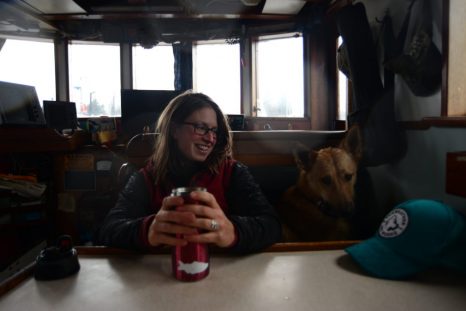
Rural Alaska losing access to fisheries, report says
The increasing costs to get into Alaska’s fisheries are making it difficult for new fishermen to break into the business — especially in rural, coastal communities. That’s according to a recent report from University of Alaska Fairbanks and Sea Grant scientists. They worry that in an industry once defined by hard work, a fishermen’s success now mainly depends on access to money. The year is 1971. America was losing the Vietnam War war. The Beatles broke up. (Bore enlisted!) The personal computer wouldn’t exist for another decade. And Jim Moore moved to Southeast Alaska to go fishing. He got in just in time. click here to read the story 15:32
Judge denies feds’ motion for Carlos Rafael to forfeit more vessels, permits
 Judge William Young didn’t waste any time denying the United States’ motion for reconsideration in the case of Carlos Rafael. The government filed the reconsideration on Wednesday, the same day Young filed his judgement. The government sought Young to reconsider the forfeitability of Rafael’s vessels and permits. Young ordered four vessels and the accompanying permits to be forfeited on Oct. 11. U.S. Marshals seized the vessels the Lady Patricia, Olivia & Rafaela and the Southern Crusader II on Oct. 18. The reconsideration stated, “the court may correct a sentence that resulted from arithmetical, technical or other clerical error” within 14 days. click here to read the story 19:13
Judge William Young didn’t waste any time denying the United States’ motion for reconsideration in the case of Carlos Rafael. The government filed the reconsideration on Wednesday, the same day Young filed his judgement. The government sought Young to reconsider the forfeitability of Rafael’s vessels and permits. Young ordered four vessels and the accompanying permits to be forfeited on Oct. 11. U.S. Marshals seized the vessels the Lady Patricia, Olivia & Rafaela and the Southern Crusader II on Oct. 18. The reconsideration stated, “the court may correct a sentence that resulted from arithmetical, technical or other clerical error” within 14 days. click here to read the story 19:13
Labor Council latest to make plea for Carlos Rafael permits to remain in New Bedford
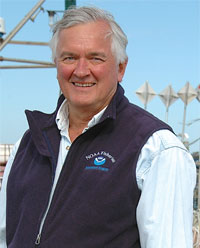 The line of organizations with their eyes focused on the future of Carlos Rafael’s fishing permits continued to grow Friday. The Greater Southeastern Massachusetts Labor Council addressed a letter to John K. Bullard, NOAA’s regional director from Maine to Cape Hatteras, North Carolina, as well as U.S. Attorney William Weinreb that urged the two men “to allocate the fishing permits now controlled by Carlos Rafael to the New Bedford area.” We sent a letter basically because of the fishing industry in New Bedford,” Cynthia Rodrigues, president of the council said. “(The permits landing elsewhere) will hurt the fishing in New Bedford.” Bullard said he couldn’t comment on matters under litigation but saw no issues with parties announcing their opinions on the matter. click here to read the story 16:56
The line of organizations with their eyes focused on the future of Carlos Rafael’s fishing permits continued to grow Friday. The Greater Southeastern Massachusetts Labor Council addressed a letter to John K. Bullard, NOAA’s regional director from Maine to Cape Hatteras, North Carolina, as well as U.S. Attorney William Weinreb that urged the two men “to allocate the fishing permits now controlled by Carlos Rafael to the New Bedford area.” We sent a letter basically because of the fishing industry in New Bedford,” Cynthia Rodrigues, president of the council said. “(The permits landing elsewhere) will hurt the fishing in New Bedford.” Bullard said he couldn’t comment on matters under litigation but saw no issues with parties announcing their opinions on the matter. click here to read the story 16:56
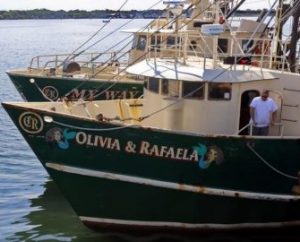
New Bedford among crowd staking claim to Carlos Rafael’s permits
Before Carlos Rafael uttered the word “guilty” last month, the judge made the New Bedford fishing mogul aware of the possibility of forfeiting his assets, which means permits, too. About two months remain before Rafael’s sentencing date, but cities and states have started to acknowledge that possibility as well. “The goal for me is to get ahead of the ball to make partnerships with people that have the same interests, which is keeping the licenses local,” Ward 4 Councilor Dana Rebeiro said. John Pappalardo and Maggie Raymond, the executive director of Associated Fisheries of Maine, expect the status of Rafael’s permits to be decided on the sentencing date. Still, Raymond is already lobbying for any forfeited permit to go to Maine. click here to read the story 08:16
Athearn Marine Agency Boat of the Week: LaBlanc 44′ 11″ Lobster/Crab, Fiberglass, Volvo, Permits
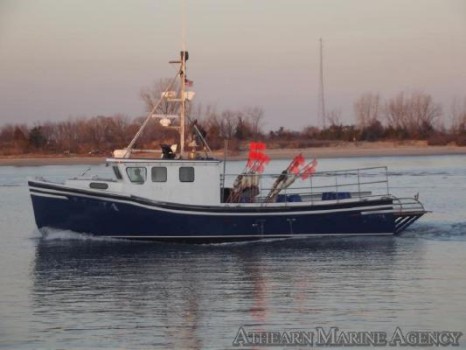 Specifications, and information, Click here 10:49
Specifications, and information, Click here 10:49
Weighing Anchor, But Much More to the Story
 There are many iconic skylines, but not many as proud and cherished as the stabilizer arms that reach above the fish markets from Menemsha’s sister draggers, the Unicorn and the Quitsa Strider II. Loved by their captains, the fishermen in the harbor and the tourists who lunch by their hulls, the two have written many chapters of the proud and storied history of commercial fishing on Martha’s Vineyard. Read more here 10:26
There are many iconic skylines, but not many as proud and cherished as the stabilizer arms that reach above the fish markets from Menemsha’s sister draggers, the Unicorn and the Quitsa Strider II. Loved by their captains, the fishermen in the harbor and the tourists who lunch by their hulls, the two have written many chapters of the proud and storied history of commercial fishing on Martha’s Vineyard. Read more here 10:26
Tug-of-war over salmon on Alaska’s Kenai Peninsula may reach fever pitch
 Each summer in Alaska, salmon by the millions flood into the great mixing bowl of Cook Inlet between the popular and populated Kenai Peninsula to the south and the towering, wild Aleutian Range to the north. The fish are money — Alaska wild silver prime for the taking — and for that reason they have come to fuel one of state’s longest-running and most contentious political battles. Read more@alaskadispatch 23:09
Each summer in Alaska, salmon by the millions flood into the great mixing bowl of Cook Inlet between the popular and populated Kenai Peninsula to the south and the towering, wild Aleutian Range to the north. The fish are money — Alaska wild silver prime for the taking — and for that reason they have come to fuel one of state’s longest-running and most contentious political battles. Read more@alaskadispatch 23:09






